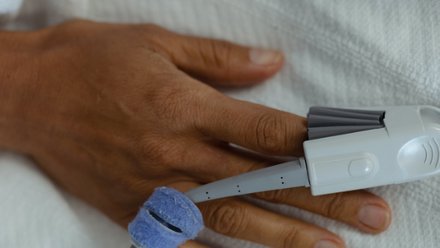We are delighted to publish our equality, diversity and inclusion report: Towards an Inclusive Future, A look inside our community.
Intensive care’s flat hierarchical approach is something other specialities aspire to. We have always understood that the unique and blended skills needed at the bedside are integral to our patient’s survivorship, and it is only by working as one team that we can strive for better patient outcomes. Fundamentally, multi-professional input sits at the very heart of our service; not one person in intensive care can do their job without the others.
With the aim of furthering our agenda for inclusion, the Society launched its Equality, Diversity and Inclusion work in 2021 led by Council Member and Intensivist, Dr Aoife Abbey and a team of professionals dedicated (see page 8) to improving and embedding substantive and sustainable change to make the working lives of professionals from across the breath of the EDI landscape better.
I hope that we are all beginning to understand that the mere presence of diversity in a team, whether that is related to ethnic background, disability, sexuality, gender or anything else, does not automatically nurture inclusivity. We are prone to forgetting that it is inclusivity that is the goal and that getting there means listening, deliberate action and a commitment over time. Getting to know each other better and being open to considering how we can care for each other better can only strengthen our teams. Our patients deserve those strong and inclusive teams.
At the outset, the EDI group was faced with both a broad range of issues and a deficit of data or testimony from our community. In order to inform our roadmap for change, we devised our EDI Census: an open-ended survey designed to be anonymous in order to provide a space where people felt safe to share their experiences. All questions were optional to ensure that respondents only provided information that they felt comfortable sharing.
The results were first analysed by a third-party organisation, Eventure, who specialise in applying qualitative and quantitive research methodologies to produce robust data. This data was further evaluated by our EDI team and turned in to today’s published report.
This landmark publication outlines 18 months of work deep diving into our community to listen, learn and better understand those working within our profession. The document comprises the lived experiences of hundreds of healthcare professionals from the breadth of the critical care community and highlights some of their real-life stories and negative experiences.
When it comes to cultivating inclusion there can be no end to the work, but there must be a beginning, and this exercise made that start. What you will read comprises conclusions from the personal experiences of 352 members of critical care teams. It is with thanks to these individuals that we have been able to find a starting point for us to begin working on providing more education, better awareness and help influence sustainable change to encourage a better workforce of tomorrow.
The testimonies from those who contributed to this report are just a fraction of our immense workforce, and yet this work still represents the largest and most expansive EDI project of its kind carried out in our multi-professional community to date. More importantly, irrespective of the denominator, we believe each of the voices and therefore their experiences shared not only ‘count’, but also represent a learning opportunity for both the Society and the teams we work with each day.
Our workforce is built on diversity, uniting professionals from all walks of life, and it is by better understanding one another that we are able to build better relationships. Furthermore, it also enables us to apply this knowledge and respect to our patients who are members of the communities outlined in this report.
The key recommendations for the Society’s next steps rely on the experiences of the people outlined in this report and it is essential to understand these in the first instance to recognise why we are embarking on this journey. We encourage you to read this document in its entirety to acknowledge that it may not represent the experiences of everyone but for some, this is very much their reality.
This report holds a mirror up to the intensive care community and demonstrates that now more than ever, we need to understand the lived experiences of colleagues, friends and peers. They have the information we need to develop and implement resources, education and projects that make intensive care fit for the future. We take this report as a positive first step in helping us to begin this work.
The future of Intensive Care in the UK is bright, but if we accept our failings, really listen, and take responsibility for being better, it can be dazzling!


